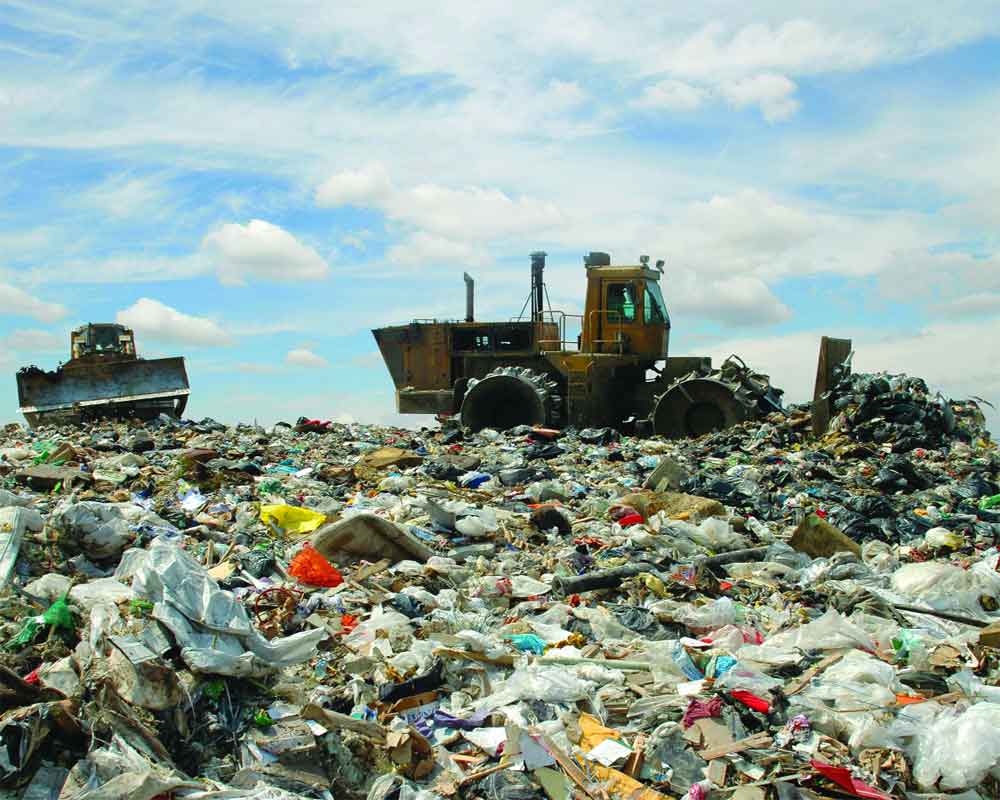Primary segregation is key to effective solid waste management, specifically recycling and composting
Solid Waste Management Rules, 2016 brought in by the Ministry of Environment, Forests and Climate Change ( MoEFCC) and monitored by the Central Pollution Control Board
( CPCB) are having limited success. Authorities right from the Ministry of Urban Development, CPCB, State pollution Control Boards, Municipalities, and Gram Panchayats have been made accountable. Implementation is mainly by municipal authorities and gram panchayats as per rules. Segregation at source is the mainstay of the Rules as has been amply demonstrated by municipalities like Indore, making citizens and institutions responsible for primary segregation.
The ministries of of Urban Development and Rural Development are the main monitoring agencies at the national level.
Ministry of Chemicals and Fertilizers, according to clause 7, has to ensure market development assistance and promotion of city compost with chemical fertilizers in the ratio of 3:4, but the ministry has done nothing to assist the municipalities and gram panchayats, where compost is being produced.
Similarly, the Ministry of Agriculture, as per clause 8, had to set up labs for checking the quality and propagation of compost on farmland, but it has done little. Central Pollution Control Board (CPCB) hardly monitors State Pollution Control Boards for implementation. Even Delhi is not segregating waste as per rules right under the nose of CPCB. According to SWM Rules 2016, Clause 15 makes local authorities responsible for solid waste management. Except for municipalities like Indore, Ambikapur and a few others, no municipality is following the rules. Cities like Noida are finally working on different types of waste and segregation at doorsteps but implementation is insufficient even though City managers like Salil Yadav worked hard to implement and succeeded partially. He has been transferred to Greater Noida Industrial Development Authority (GNIDA) to implement in the planned township of Greater Noida.
GNIDA was fined Rs 2 crore by National Green Tribunal in 2019 for not properly implementing SWM 2016 rules. Since then, it has taken action for empanelment of private agencies for bulk waste generators (apartments) and has empaneled more than 17 agencies in category 2 of its notification.
Sources said three attempts were made by GNIDA to empanel vendors for colonies but due to unfavourable conditions such as unwillingness to pay or pay very little, harassment of sanitary workers and collectors, the attitude of residents, foiled the initiative.
A look at the implementation of apartments and colonies like Jalvayu Vihar, AWHO, Gurjinder Vihar, Jaypee Greens, La Residentia, NHPC Employee colony, Greenwoods Society, Ansal Golf Links, Gaur City 1 & 2 throws up interesting facts.
Jaypee installed a composter machine in July 2021, in accordance with the SWM rules of GNIDA and Central Government, but the machine had not worked properly due to its vendor’s inadequacies. Segregation at the residential level was patchy at best. A person from the machine maker explained that it is a proper aerobic composter and not a burning machine as used in many societies. Sources from GNIDA informed that Jaypee had been fined heavily on quite a few occasions as waste was not being processed and was picked by a company, K waste, which disposed of all wastes in landfills. Penalty amount could not be verified. La Resdentia was earlier a joint venture with Amrapali. After being fined by GNIDA they have bought the machine and are finalizing the vendor. In the case of Gaur City, a huge residential complex, segregation, and processing were not visible.
AWHO, similar to Jaypee Greens, has a very big aerobic composter and a proper structure allotted and one of the first to implement in 2019. It was inaugurated by Deputy CEO of GNIDA, but the machine is not working since September 2021. A source in the RWA office informed that a company was doing the composting till August 2021 but the RWA Housekeeping committee and the company had their differences and so, the company was asked to wait till they try a new vendor from September 2021. But it has been months and neither the current vendor K Waste nor the current RWA committee has taken action to rectify the machine. The plant did not have any workers and no evidence of any waste management work was seen. GNIDA has not taken action against AWHO as per rules. The earlier company was not available for comments.
In the case of AWHO, one RWA committee was the initiator and the committee which came later played the spoilsport and violator. GNIDA sources informed they have blacklisted certain vendors like SVM, who were throwing waste in landfills in Greater Noida or even transported it to Ghaziabad.
(The writer is Special Correspondent, The Pioneer. The views expressed are personal.)


























